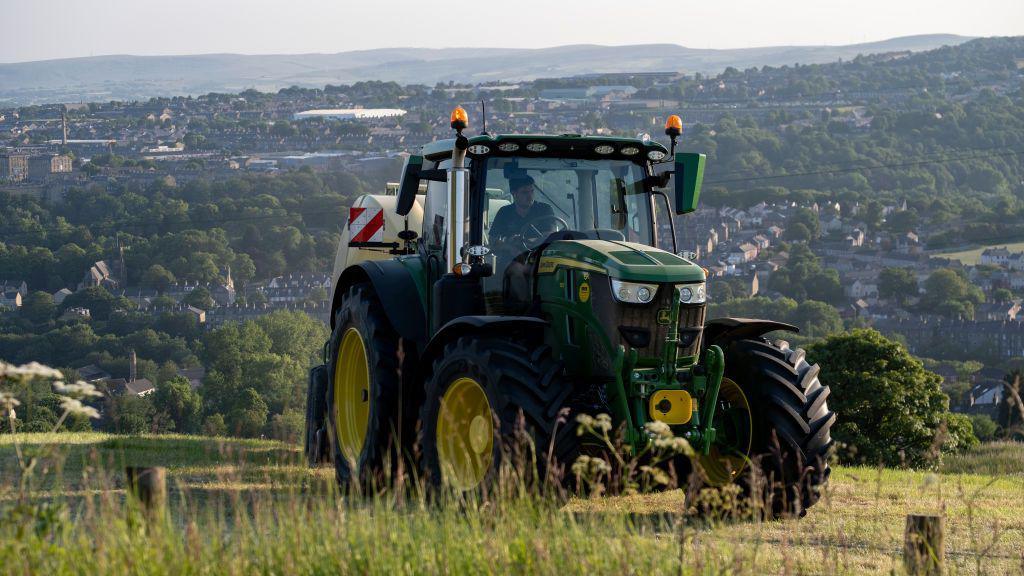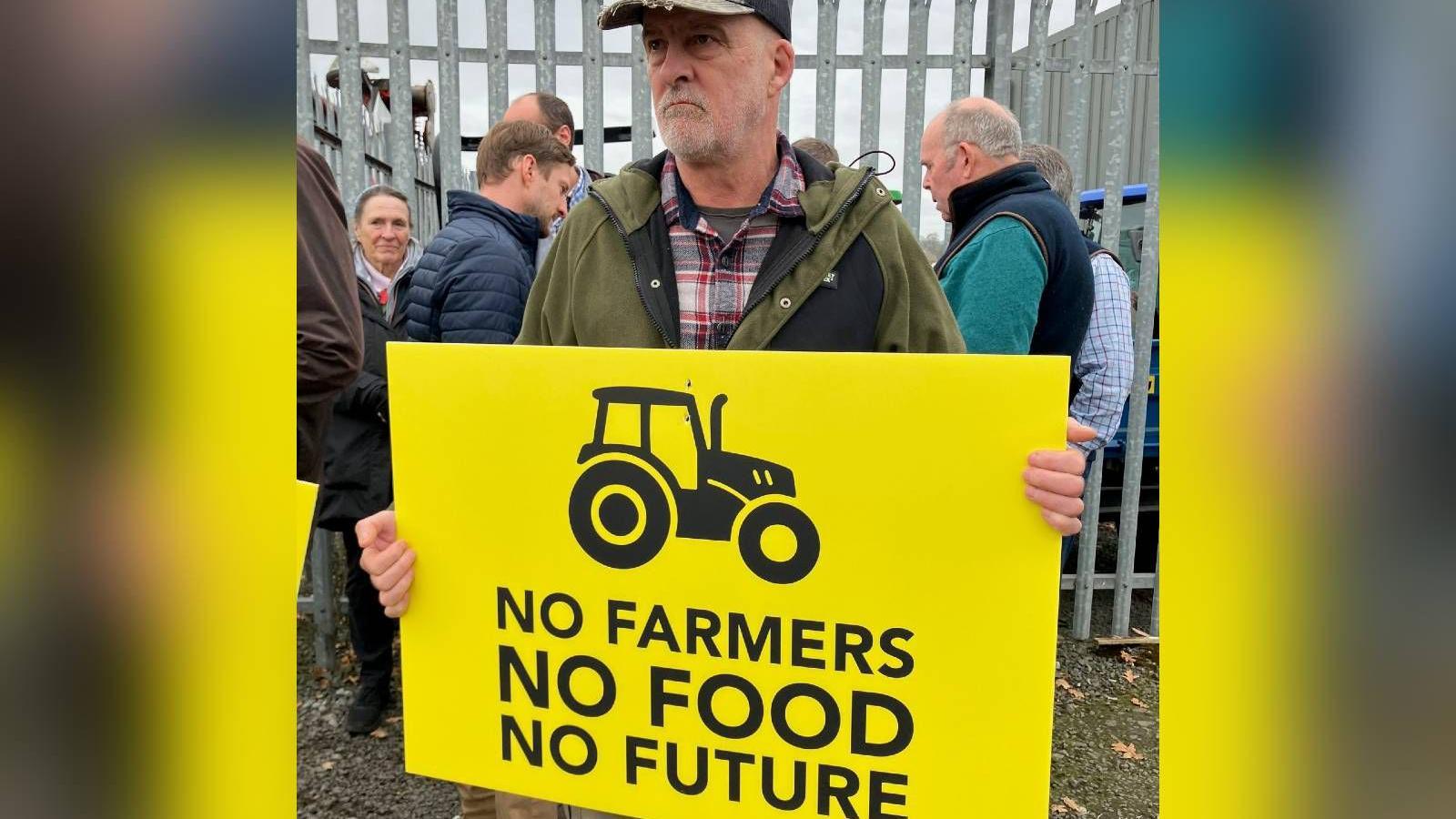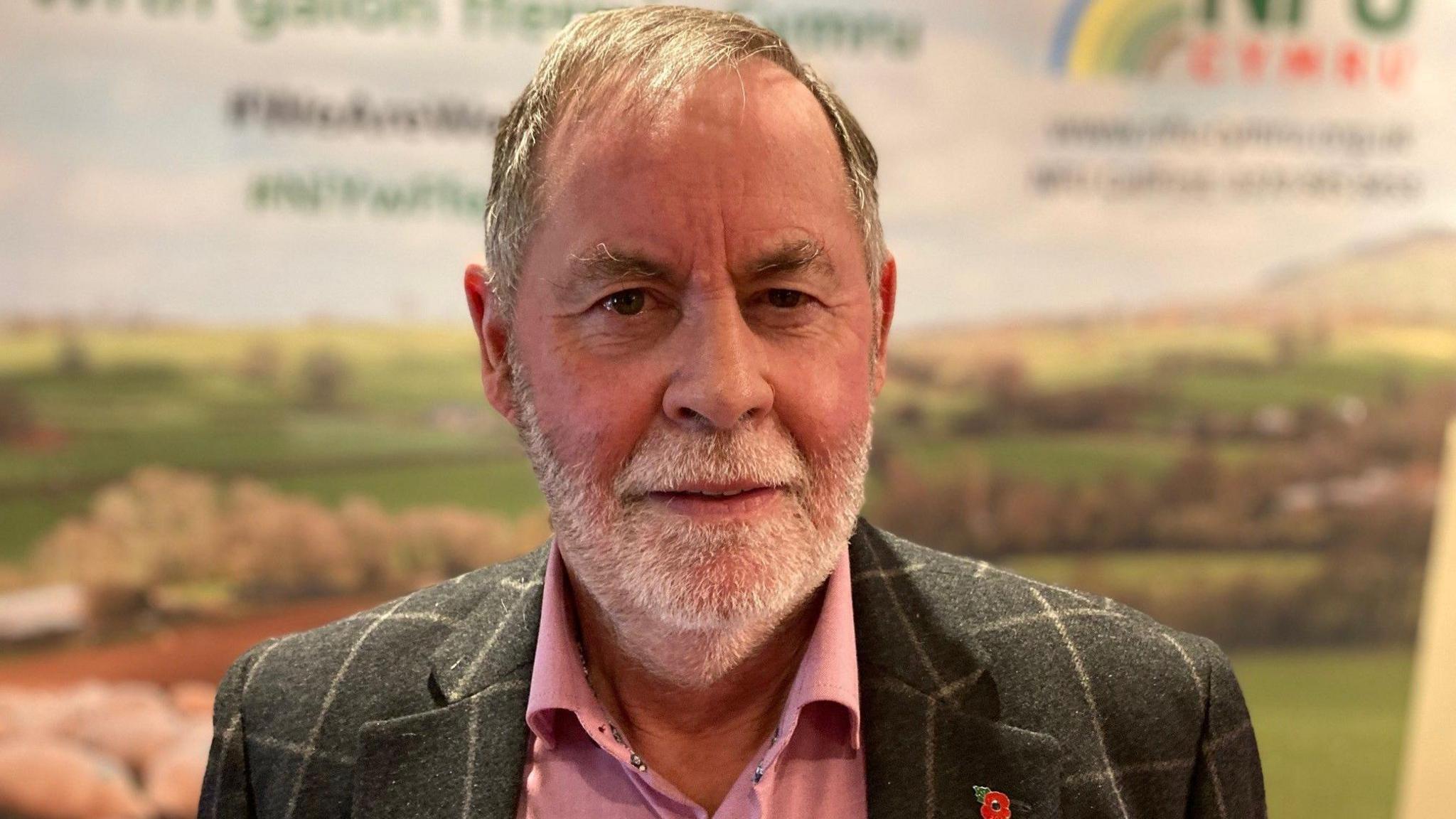Bid to soften farm tax change rejected by Treasury

The Chancellor announced an end to inheritance tax exemption for farms in October.
- Published
A bid by the department for rural affairs to soften changes to inheritance tax for farms - possibly by exempting some older farmers - has been rejected by the Treasury.
The Treasury said there would be no change or mitigations to the policy, which will see an end to inheritance tax exemption for some farms.
From April 2026, farms worth more than £1m will face an effective inheritance tax rate of 20% - half the usual rate of 40%.
BBC Newsnight understands that the Department for Environment, Food and Rural Affairs (Defra), which represents the interests of farmers in government, believes it was not properly consulted over the change.
How many farms will be affected by Budget tax rises?
- Published10 December 2024
Most farmers won't pay inheritance tax, PM insists
- Published6 November 2024
Farmers 'betrayed' by £1m inheritance tax relief cap
- Published30 October 2024
The department was informed about the policy the night before it was announced in the Budget.
The move has been branded "disastrous" by the National Farmers' Union (NFU), with some farmers warning it would decimate the countryside.
Defra suggested softening the policy to exempt some older people, possibly those over the age of 80.
The April 2026 start for the policy means they may not have time to make use of existing rules to skip inheritance tax by passing on an asset seven years before death.
But this suggestion has been dismissed by the Treasury, which said it had taken "a fair and balanced approach".
Since its introduction in 1984, agricultural property relief (APR) has allowed small family farms – including land used for crops or rearing animals, as well as farm buildings, cottages and houses - to be exempt from inheritance tax.
The Treasury said 40% of APR had been going to "the 7% wealthiest claimants", and that it had "made a difficult decision to ensure the relief is fiscally sustainable".
It put this against a backdrop of “public services crumbling [and] a £22bn fiscal hole inherited from the previous government".
“Around 500 claims each year will be impacted and farm-owning couples can pass on up to £3m without paying any inheritance tax - this is a fair and balanced approach," a spokesperson added.
There are divisions in government over the change.
Some ministers believe it will only have an impact on relatively wealthy farmers - a couple using all their inheritance tax benefits will be able to pass on a £3m farm tax free. Any inheritance tax charge on farms can be paid over 10 years.
But other ministers believe the chancellor is in danger of undermining Labour’s relations with rural Britain while raising a relatively small amount of money.
The change could raise around £560m.
Some sources in government have expressed concerns that the chancellor is creating unnecessary grief over a change that is not, in relative terms, a huge money spinner.
There are concerns that the change - which has proved controversial among farmers since its announcement - could become “totemic” in rural Britain.
Protests
The NFU warned it would “snatch away the next generation’s ability to carry on producing British food” and see farmers forced to sell land to pay the tax.
A rally to protest against the plan will be held in Whitehall next Tuesday.
There is also a dispute around the figures used to calculate the changes.
Farmers' leaders have been told by Defra that the figures come from the Treasury and not their department.
Tom Bradshaw, the president of the NFU, said that Defra figures showed the changes would have an impact on 66% of estates.
The Treasury said the figure was 28%.
Clive Bailey, founder of the Farming Forum which is also organising a protest in central London next week, said on Thursday that any change to the new rules “would be a step forward”.
Mr Bailey, who farms in Staffordshire, said the suggested exemption should cover people much younger than 80.
Compared with the wider population, farming sees "a lot of people who should have retired already still working”, he told BBC Radio 4’s Today programme.
He called the inheritance rules “so poorly thought out”.
The cost of running a viable farm exceeded £1m, he said, arguing that the government needed to sit down "with real family farmers or agricultural economists".
“We’re not special, but the economic circumstances of farming are very different to other industries."
'The policy will not change'
During rural affairs questions in the Commons, Conservative shadow environment minister Robbie Moore accused the government of "arrogance" and urged ministers to publish a full impact assessment of the change.
Environment minister Daniel Zeichner reiterated the government's figures that fewer than 500 farms a year would be affected.
He added there were ways the change could "be managed" and called on Conservatives to "join me in reassuring British farmers about their future".
Another Tory MP, former cabinet minister Sir Jeremy Wright, asked if ministers had considered limiting inheritance tax exemptions to those who could prove a farm had been in family ownership for "a certain number of years".
Zeichner replied that the issue was "complicated", adding "in future we will have further discussions".
Lib Dem environment spokesman Tim Farron said the tax rise would be a "disaster for family farms".
"Rather than blocking pleas from Defra to rethink, the chancellor must urgently meet with the farming community and NFU to better understand their heartfelt concerns and reverse the tax hike".
A Defra spokesperson said: “With public services crumbling and a £22bn fiscal hole inherited from the previous government, we have made the difficult decision to reform Agricultural Property Relief in a balanced and fair way.
“All ministers support the policy and it will not change.”
- Published19 November 2024

- Published6 November 2024

- Published7 November 2024
